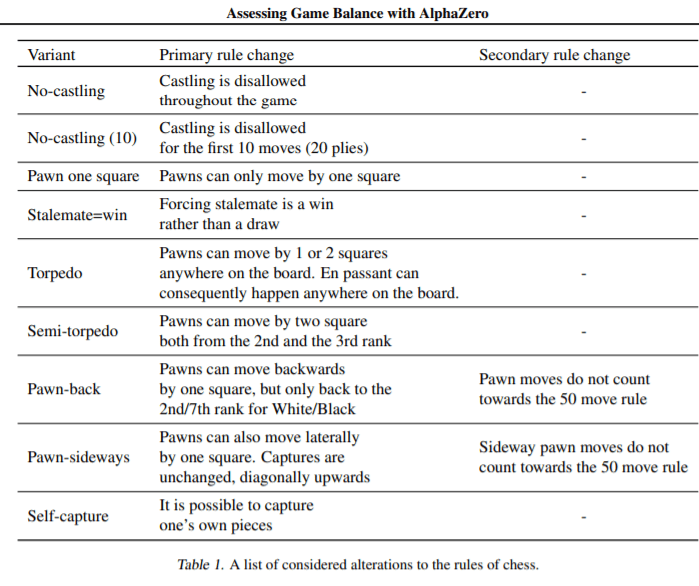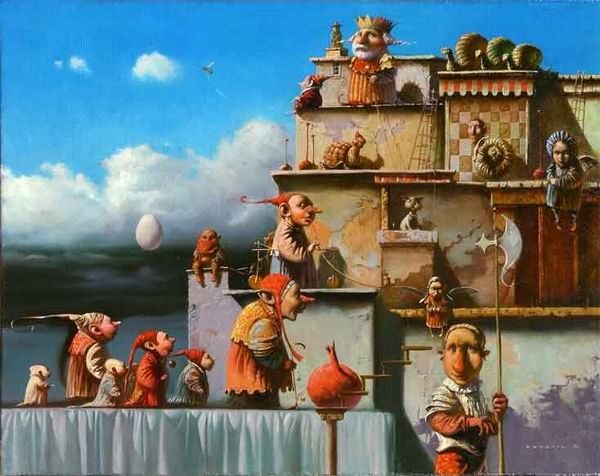
Kramnik and AlphaZero Blundering, Grossly
The top chess has been in a state of crisis. There has been an ever decreasing number of decisive games ("the draw death") that plagues the professional chess.
The opening theory has grown to grotesque proportions. There is an undue, unhealthy reliance on the book knowledge and the help of computers in the opening stage of game, not on the player's own resources, understanding or creativity. As the latest study, published by AlphaZero earlier this week reminds us, "the non-negligible number of games end while both players are still in their home preparation." This home opening preparation, heavily aided by chess engines, has become central for top players as well as aspiring players' improvement.
Is this what the essence of our noble game is supposed to be? Unfairly ambushing the opponent at move 25 by a stroke your chess engine has crunched for you while they are unable to react effectively within time control limits?
To revitalize the game, a number of chess variants have been invented. In the aforementioned study, the AlphaZero team including the former World champion Vladimir Kramnik have explored and compared classical chess and nine variants for "novel strategic and tactical patterns" for "further development of chess." The team's idea involved "atomic changes" to the rules so as "to keep the game as close as possible to classical chess."

Fischerandom chess was not part of the study. For some reason Kramnik detest 960 and thinks it is too radical. Instead he has been advocating no-castle chess (effectively bringing us back five centuries to the Middle Ages, slowing down the game, against the trend and the historic changes [the increased scope of Q/B, the two-move pawn move, en-passant] aiming at greater game dynamics).
Kramnik and AZ consider also the torpedo, pawn-back, pawn-sideways variants. And the self-capture (if chess is mirroring warfare, what the heck is this supposed to mean? killing friendly troops?).
According to the 14th World Champion, all these are just subtle, "atomic" changes. As far as I can say, many of them drastically change the nature of or slow down the game. And Fisherandom that is hundred percent chess ("only without preparation," Spassky) and has the same rules (except for castling to accommodate for random starting position) is too radical! Good grief!

The starting point of all Kramnik's approach concerning new variants is based on the following assumption, there is an inherent flaw that exists in the the game itself; thus it is necessary to alter its rules.
I like calling Kramnik's intention to change the game rules and its result(s) transchess. In the same fashion the transhumanism wants to transform human condition and overcome the limitations and imperfection of our nature and make us "better" and "more intelligent" beings, Kramnik wants to reinvent chess and transcend its "limitations." The entire, it seems to me, futile and doomed attempt to fix chess was received with much enthusiasm in the chess community, by the main portals and in SM, even described on Twitter as some sort of "brave new world" of chess (sic!).

Well, to me, it all ends up in another dystopian satire. Kramnik's brave new world is failing dismally as much as the one Huxley has created. There's an important difference though. While Huxley’s world was just an ominous warning, Kramnik, scientifically (sic!) backed by AlphaZero, seems truly to believe in his.
What is amazing, and what seems a gross impairment of judgment by the 14th World Champion, is his failure (or blunder, chessly speaking) to recognize the true culprits of chess crisis,
(1) the monstrous opening "theory," coupled with (2) the cancerous intrusion into the game and damaging effects of chess engines (they "can’t give you classical ideas — they reduce creativity and make chess mechanical, technocratic," Maya Chiburdanidze, the sixth Women's World Chess Champion from 1978 to 1991), (3) the rating system (instead of best games, valuing creative, artistic aspect of the game and advance of interesting ideas, the dead four-figure number is the only way for organizers and the public to judge a player's class of play), (4) the established practice of watching the same 20 or so players at all big events, etc.
Kramnik and AZ's variants don't address and don't fix any of the above evil doers whatsoever.
Only Fischerandom effectively eliminates the two main culprits of chess being seriously diseased, opening preparation and intrusion of machines into the game.
I think chess960 is great as it is simply pure intuition and understanding without theory or computers — Hikaru Nakamura

